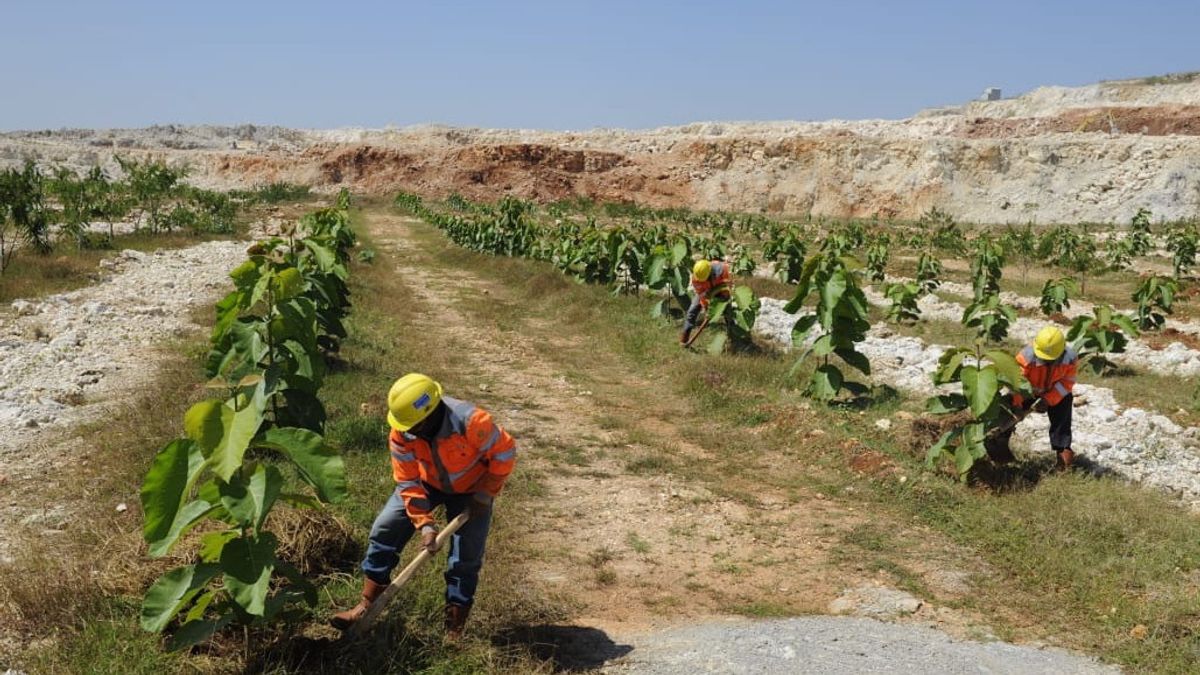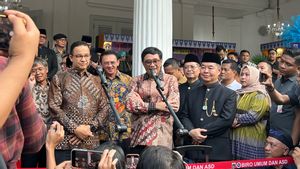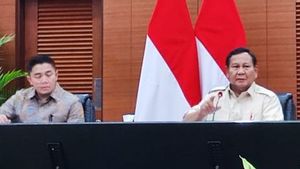JAKARTA - PT Semen Indonesia (Persero) Tbk (SIG) ranks first in the category of construction materials in Southeast Asia, through the achievement of the Medium Risk predicate with a score of 22.9 in environmental, social and governance performance assessments or Environmental, Social, Governance (ESG) Rating conducted by the international rating agency, Sustainalytics. The results of this assessment have also been announced through the official website of Sustainalytics.
The ESG Rating carried out by Sustainalytics is a reference for investors to the sustainability performance of issuers or public listed companies in the ESG aspect. An assessment is carried out to see the company's ability to manage risks and impacts caused by business operations on the environment, social, and governance. Sustainalytics divides the ESG Rating assessment into 5 categories, including the Negative Risk 0-10, Low Risk 10-20, Medium Risk 20 - 30, High Risk 30 - 40 and Severe Risk >40.
GIS President Director, Donny Arsal said, GIS is proud to be the best in implementing ESG in Southeast Asia for the category of construction materials companies. This is a manifestation of SIG's commitment to carrying out the best ESG-based business practices to increase risk management capabilities, as well as optimize any potential that supports the Company's business growth.
"As a company engaged in the building materials industry with existing risk potentials, GIS places the ESG factor as our operational basis and strengthens its commitment to improving sustainability performance by establishing the Sustainability Road Map 2030 and the formation of the Sustainability Committee," said Donny Arsal, in his statement, Friday, March 1.
SVP Sustainability Office SIG, divided Daunan explained, SIG Sustainability Road Map 2030 is a guide for all GIS business entities, which contain the Company's strategy, targets and initiatives in achieving sustainability. This roadmap is a guide in in integrating sustainability into the Company's overall business strategy.
The Sustainalytics Medium Risk predicate indicates that the implementation of the ESG in GIS business operations is running well so that it is considered to have the ability to even achieve improvements in risk management. This achievement certainly further spurs us in accelerating the achievement of the sustainability targets that have been set by the Company in the Sustainability Road Map 2030," said Daunan.
On the environmental aspect, GIS implements a focus on reducing CO2 emissions, among others, through the use of alternative fuels from industrial waste, biomass, urban waste managed to refuse-derived fuel (RDF), hydrogen injection and thermal energy efficiency (STEC). SIG also supports the development of renewable energy through the use of solar panels for electricity substitution in operational units, as well as optimization of hot exhaust gas from the cement production process (Waste Heat Recovery Power Generation).
Thanks to various efforts that have been made in 2023, GIS has succeeded in reducing 17.37 percent of the intensity of CO2 coverage 1 (from operations) compared to the 2010 baseline. Meanwhile, coverage of 2 (indirect energy use) was successfully reduced by 5.22 percent.
Meanwhile, on the social aspect, SIG contributes to efforts to improve the quality of life of the community through health programs to reduce stunting and community-based economic empowerment. Several GIS social innovation programs such as Bilih fish conservation, which are endemic endangered species in Lake Singkarak, West Sumatra, as well as post-mining land management in Tuban, East Java, have become ecoparks for agricultural education and community development, successfully bringing SIG to the 2023 Golden PROPER from the Ministry of Environment and Forestry.
GIS concerns to support economic improvement and the quality of education for communities around operational areas are carried out through various programs, including scholarship programs, educational programs for orphans and disabilities, to company-based vocational-based vocational education (Entred-based Vocal Education). GIS has also helped community-group MSMEs to advance to class, including those who are members of the SIG BUMN House in Rembang, Central Java and the SIG BUMN House in Baturaja, South Sumatra. To date, these various programs have touched more than 7.2 million beneficiaries.
SEE ALSO:
Meanwhile, in terms of governance, SIG is committed to applying the principles of Good Corporate Governance (GCG) at every level of organization and operational activities. This commitment is realized through the employee competency development program, the preparation of Code of Conduct for all employees, as well as gratification control with the achievement of ISO 37001 certification on Anti-Bribery Management Systems.
In developing human resources, in addition to innovation programs, various trainings and scholarship programs for employees, GIS also ensures the implementation of the principle of equality and fairness, as well as the principle of equal opportunity in the process of managing human resources (HR). Currently, 20 percent of the top talent in GIS is women. GIS provides the same opportunity to work and fill positions or positions according to employee capacity and competence without discrimination.
"As a leading building material solution company in Indonesia, GIS is ready to become a role model for industry in implementing the ESG aspect to support the government in realizing sustainable development goals in Indonesia and the region," said Orang Daunan.
The English, Chinese, Japanese, Arabic, and French versions are automatically generated by the AI. So there may still be inaccuracies in translating, please always see Indonesian as our main language. (system supported by DigitalSiber.id)
















